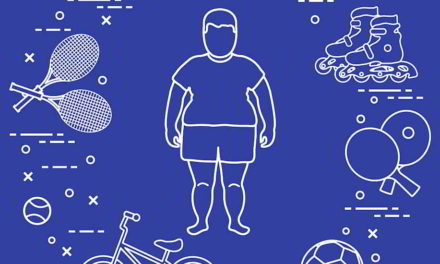We all know the physical benefits of regular exercise, but keeping active is good for mental health, too.
One in 10 children aged between five and 16 in the UK have a mental health disorder, according to a 2004 study carried out on behalf of the Office for National Statistics.
That equates to three students in every classroom, says YoungMinds, the UK’s leading charity championing the wellbeing and mental health of young people.
The most common problems include depression, anxiety, stress, attention deficit hyperactivity disorder (ADHD) and eating disorders.
Worrying as these findings are, today’s figures are likely to be worse.
Research by the Nuffield Foundation found that the number of teenagers experiencing depression or anxiety have doubled in the last 30 years, while NHS data shows that the number of young people being treated for anxiety on hospital wards rose by 42 per cent in 2015/16, compared to 2014/15.
So what can be done to address this growing issue?
Exercise can improve mental health
There is plenty of research showing that regular exercise is beneficial to mental health in adults. This hasn’t been studied as much in children, but common sense says it must be true for them too, and a growing body of evidence backs up this supposition.
This makes sense. Physical activity releases chemicals known as endorphins. These both reduce the brain’s perception of pain and trigger feelings of euphoria, promoting a feeling of wellbeing. This is why we might feel high after a vigorous workout.
Conversely, regular exercise reduces the amount of stress hormones in the body, resulting in a slower heart rate, relaxed blood vessels and lower blood pressure.
Seratonin, dopamine and ADHD
Exercise also increases the levels of seratonin and dopamine in the brain. These neurotransmitters are important mood enhancers and play a part in both depression and ADHD, medications for which also work by boosting these chemicals.
Seratonin and dopamine also enhance focus and attention.
A study published on the American Academy of Pediatrics website AAP Gateway showed that just 20 minutes of exercise can immediately improve focus and attention levels in children with ADHD.
Physical activity distracts from negative thoughts
Rumination – when you get caught in a cycle of negative thoughts – has been shown to contribute to depression and anxiety.
Physical activity provides a distraction, taking the mind out of itself just enough to help stop that circular thinking and so help control rumination.
Regular exercise is an important element in maintaining a healthy weight, which can boost self-confidence. This is especially important for overweight or obese students.
Obesity can have a negative impact on mental health
Government figures show that almost one third of British children are overweight or obese. The psychological effects of this include low self-esteem, anxiety and depression.
In one study, severely obese children rated their quality of life as low as children with cancer on chemotherapy.
This doesn’t mean that exercise is a cure all for mental health issues, or a replacement for medication and therapy, but it is a very useful tool in combating childhood mental health problems.
Rebecca has been a writer and editor for almost 20 years. She writes on a huge range of subjects, concentrating on sport, nature, mental health, and crafts.










